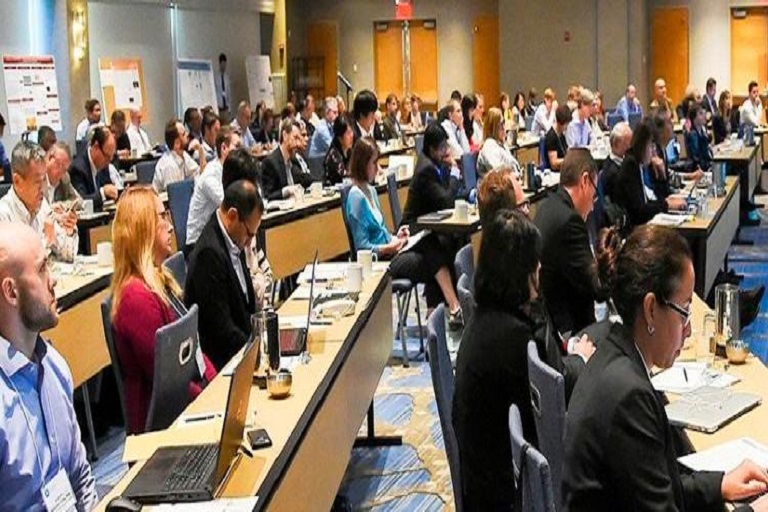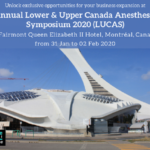Teens are struggling to recognize the addictive potential of Juul e-cigarettes, a product that appeals to youth, according to a team of Stanford researchers.
Teens and young adults who use Juul brand e-cigarettes are failing to recognize the product’s addictive potential, despite using it more often than their peers who smoke conventional cigarettes, according to a new study by researchers at the Stanford University School of Medicine.
The findings, from an ongoing Stanford project addressing the use and perceptions of tobacco products by California youth, were published Oct. 19 in JAMA Network Open.
“I was surprised and concerned that so many youths were using Juul more frequently than other products,” said the study’s senior author, Bonnie Halpern-Felsher, PhD, professor of pediatrics. “We need to help them understand the risks of addiction. This is not a combustible cigarette, but it still contains an enormous amount of nicotine — at least as much as a pack of cigarettes.”
The data show a worrisome disconnect between teens’ perceptions of their Juul use and actual addiction, the researchers said. “We ask, ‘Do you feel addicted?’ And they say no, but a series of questions on a validated scale for assessing loss of autonomy over nicotine show that they’re dependent,” said the study’s lead author, Karma McKelvey, PhD, a postdoctoral scholar.
More nicotine
Juul e-cigarettes first went on sale in 2015 and now account for two-thirds of the U.S. e-cigarette market. They deliver more nicotine than competing brands of e-cigarettes, and produce a throat hit that is more comparable to conventional cigarettes than their predecessors. Juul’s design, using flavored nicotine-containing liquids inhaled from colorful pods that resemble USB flash drives, also appeal to the youth market. The Food and Drug Administration recently launched a campaign to warn youths of the dangers of e-cigarettes and attempt to stop Juul sales to young people. However, little scientific research has been done on the impact of Juul use on teenagers and young adults.
The Stanford researchers decided to ask about Juul as part of a tobacco-use study they have been conducting in 10 California high schools. In the first phase of the study, completed in 2014 and 2015, more than 700 students in ninth or 12thgrade answered questions about their use and perceptions of tobacco products. The new findings come from follow-up questionnaires completed by 445 participants from this study. They were in 12thgrade or a few years out of high school when the new data were collected.
Participants answered questions about whether they had ever heard of Juul; if and how often they used conventional cigarettes, Juul or other types of e-cigarettes; their use of flavored e-cigarette products; their perceptions of the social acceptability of the various products; and their perceptions of the products’ risks and benefits. Participants who used any form of e-cigarette also completed a standardized questionnaire to assess their degree of nicotine dependence.
About half of the participants had heard of Juul, and 15.6 percent had used the brand. Other e-cigarettes were used by 30.4 percent of participants, while conventional cigarettes were smoked by 24.3 percent of participants. About two-thirds of the participants who used these products used more than one type of product: some combination of Juul, other e-cigarettes and conventional cigarettes.
The participants reported using Juul about twice as often as smoking conventional cigarettes when asked about use of tobacco products over the past seven or past 30 days.
Believed to be less harmful
Participants thought Juul e-cigarettes were less harmful or addictive than other products mentioned in the survey. However, among the participants who had tried Juul, 58.8 percent reported that they had used Juul within the last 30 days. Among participants who had tried other e-cigarettes or conventional cigarettes, 30.1 percent and 28.3 percent, respectively, reported use within the last 30 days. This was the most striking difference between Juul users and users of other e-cigarettes and conventional cigarettes, and it raises concerns about higher rates of addiction among Juul users, Halpern-Felsher said. Answers to the validated questionnaire about loss of autonomy over nicotine use suggested similar levels of nicotine dependence between Juul users and those using other e-cigarettes, she noted, although the sensitivity of the questionnaire may have been limited by the relatively small number of participants.
The study’s results emphasize the need for clear public-health messages about the risks of new types of e-cigarettes, including Juul, the researchers said. “The absence of clear messaging is interpreted as safety among adolescents,” McKelvey said. Nicotine-containing products are particularly risky for teens, she added. “The earlier you’re exposed to nicotine, the higher the likelihood that you’ll be addicted throughout your life.”
Teachers and parents also need better information, Halpern-Felsher said. “We need to get in front of identifying and explaining new and different nicotine-containing products so that we can regulate them and protect youth from using them,” she said. “It took quite a while for teachers to start realizing that this product [Juul] existed and that what they were seeing in classrooms were not USBs.”
Halpern-Felsher and her team have developed a free tobacco prevention toolkit that is available online for educators, parents and others working with young people.
Mike Baiocchi, PhD, assistant professor of medicine at the Stanford Prevention Research Center, was also an author of the paper. Baiocchi is a member of Stanford Bio-X, and Halpern-Felsher is a member of the Stanford’s Child Health Research Institute and the Stanford Cancer Institute.
The research was funded by the National Cancer Institute (grant 1P50CA180890), the U.S. Food and Drug Administration Center for Tobacco Products, and the Child Health Research Institute.
Stanford’s Department of Pediatrics also supported the work
Other research on e-cigarettes
Also publishing Oct. 19 is a commentary by Halpern-Felsher about a tobacco-prevention curriculum developed by Juul. The commentary, which will appear in the Journal of Adolescent Health, expresses concern about several aspects of Juul’s curriculum. Juul provides schools with a financial incentive of $10,000 to use its curriculum and does not follow best practices in adolescent tobacco education, according to the commentary.
For example, the curriculum does not discuss the role of industry in marketing tobacco- or nicotine-containing products to youths, makes little mention of Juul by name, and does not discuss why young people use e-cigarettes or mention that flavored products such as Juul may be especially appealing to them. The co-author of the commentary is Jessica Liu, a graduate student at Yale University who completed a summer internship in Halpern-Felsher’s lab.
Earlier this month, the researchers also published a study in Addictive Behaviors exploring teens’ perceptions of advertising for flavored e-cigarette liquids. E-cigarette manufacturers, including Juul, claim that their flavors are not marketed to teens. Yet when asked to view ads for flavored e-cigarette liquids, most of the 255 teenage participants in the study said they believed the ads were targeted at their age group. McKelvey is the lead author of this study and Halpern-Felsher is the senior author. Other Stanford co-authors are Baiocchi; research associate Divya Ramamurthi; and Sheila McLaughlin, a program coordinator in pediatric and adolescent medicine.


















































